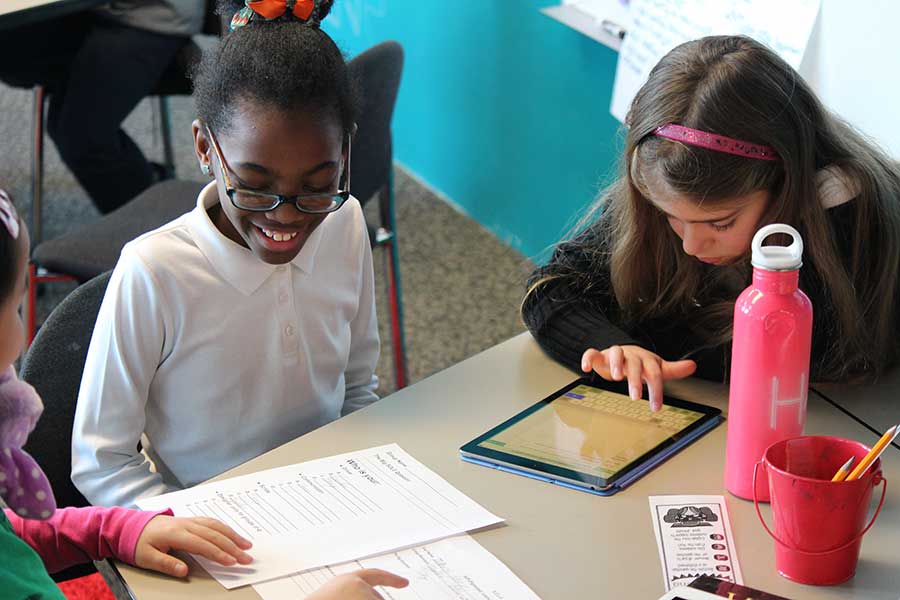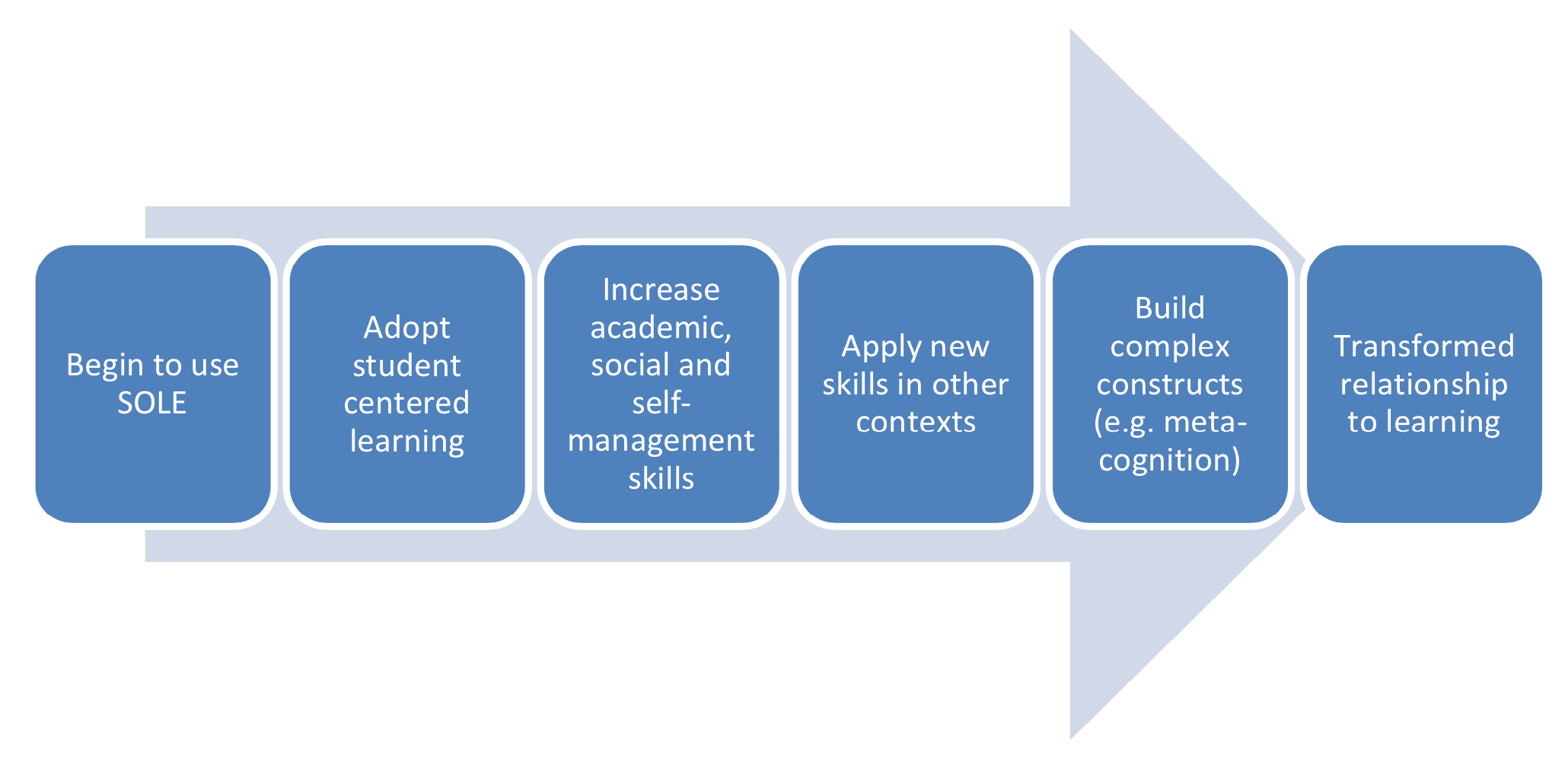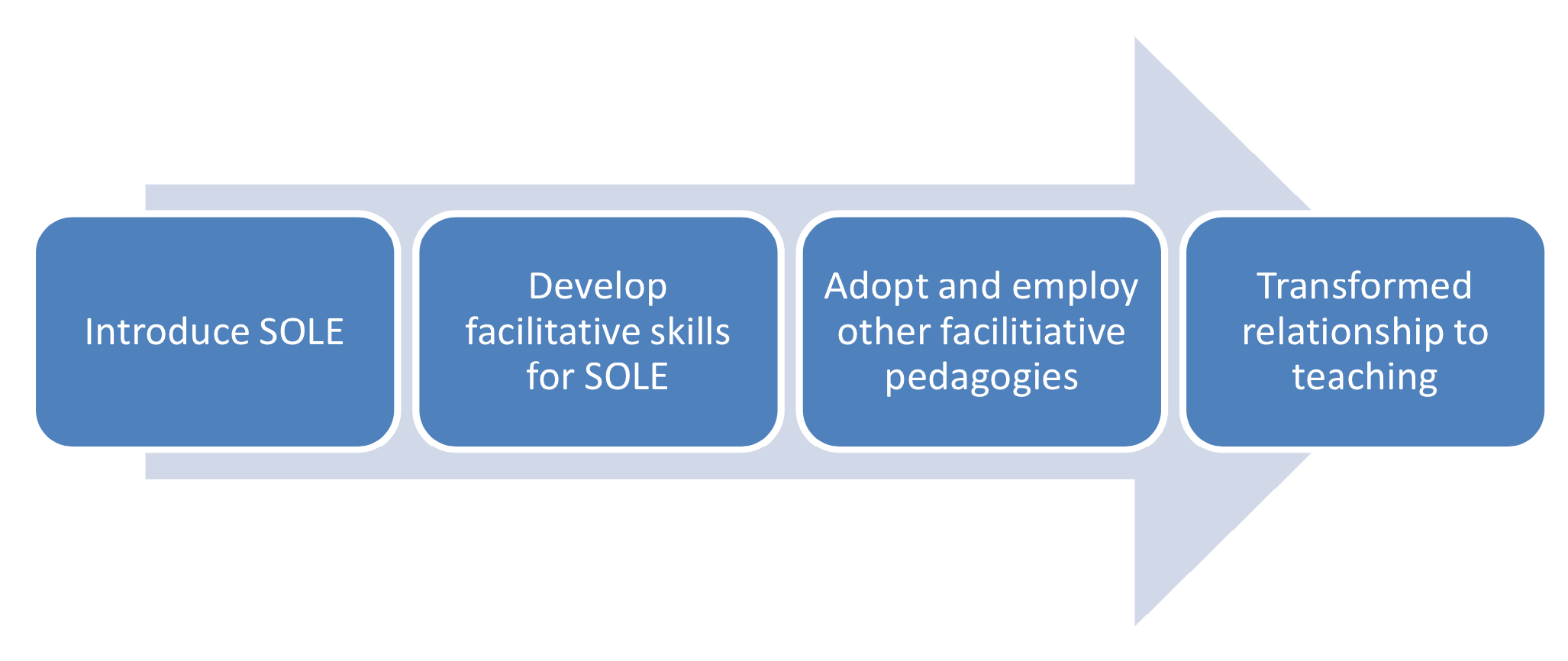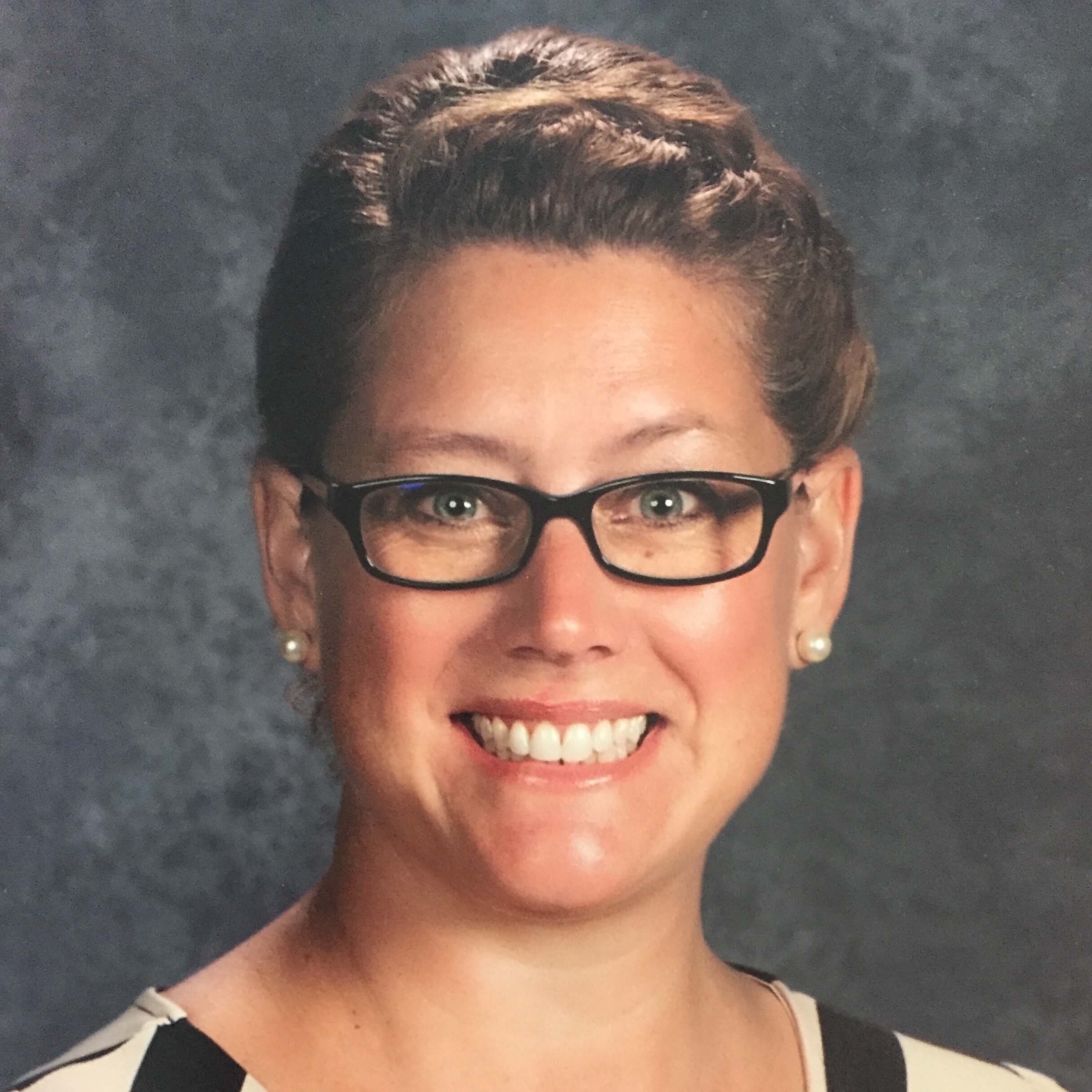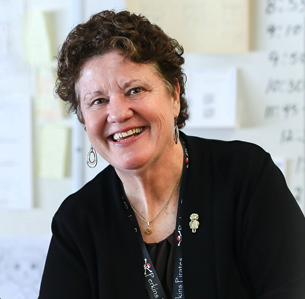|
Learning at the Edge of Chaos
|
Sugata Mitra, Suneeta Kulkarni, James Stanfield
|
|
|
The significance of student voice
|
Dana Mitra
|
The notion of 'student voice,' or a student role in the decision making and change efforts of schools, has emerged in the new millennium as a potential strategy for improving the success of school reform efforts. Yet few studies have examined this construct either theoretically or empirically. Grounded in a sociocultural perspective, this article provides some of the first empirical data on youth participation in student voice efforts by identifying how student voice opportunities appear to contribute to 'youth development' outcomes in young people. The article finds that student voice activities can create meaningful experiences for youth that help to meet fundamental developmental needs-especially for students who otherwise do not find meaning in their school experiences. Specifically, this research finds a marked consistency in the growth of agency, belonging and competence-three assets that are central to youth development. While these outcomes were consistent across the students in this study, the data demonstrate how the structure of student voice efforts and nature of adult/student relations fundamentally influence the forms of youth development outcomes that emerge.
|
|
21st Century Skills and Competencies
|
Katerina Ananiadou & Magdalean Claro
|
This paper discusses issues related to the teaching and assessment of 21st century skills and competencies in OECD countries drawing on the findings of a questionnaire study and other relevant background material such as white papers or curriculum documents. Although all OECD countries were invited to participate in the questionnaire survey, responses were received from seventeen countries or regions, and the paper focuses primarily on this group. The paper presents a short discussion of the importance and relevance of 21st century skills and competencies in the current policy debate and the definitions and conceptual frameworks that have been used in the literature, and proposes a new three-dimensional framework, consisting of the dimensions of information, communication and ethics and social impact. The findings of the questionnaire survey show that most countries or regions cover 21st century skills and competencies in their regulations, guidelines or recommendations for compulsory education. However, there are few specific definitions of these skills and competencies at national or regional level and virtually no clear formative or summative assessment policies for these skills. The only evaluation regarding their teaching is often left to external inspectors as part of their whole school audits. Similarly there are few teacher training programmes that target the teaching or development of 21st century skills, although there exist several teacher training initiatives that focus on developing teachers’ ICT pedagogical skills, most of them optional. The paper discusses the implications of these findings especially with regard to the particular role of ICT in the development of these skills and competencies, and issues related to assessment practices and teacher training.
|
|
Project-Based Learning for the 21st Century
|
Stephanie Bell
|
Project-Based Learning (PBL) is an innovative approach to learning that teaches a multitude of strategies critical for success in the twenty-first century. Students drive their own learning through inquiry, as well as work collaboratively to research and create projects that reflect their knowledge. From gleaning new, viable technology skills, to becoming proficient communicators and advanced problem solvers, students benefit from this approach to instruction.
|
|
Peer Learning and Assessment
|
David Boud
|
Various forms of peer, collaborative or cooperative learning, particularly small group activities, are increasingly used within university courses to assist students meet a variety of learning outcomes. These include working collaboratively with others, taking responsibility for their own learning and deepening their understanding of specific course content. The potential benefits of peer learning have long been recognised and are especially relevant today. However, many existing assessment practices act to undermine the goals of peer learning and lead students to reject learning cooperatively. If assessment gives students the message that only individual achievement is valued, and that collaborative effort is akin to cheating, then the potential of peer learning will not be realised. Inappropriate assessment practices may also lead to unhelpful forms of competition within and between groups that prevent groups functioning effectively. This paper examines some of the main assessment issues in connection with peer learning and suggests ways in which the benefits of this approach can be maintained while still meeting the formal assessment requirements of the course. It discusses the use of group assessment, peer feedback and self‐assessment, assessment of participation and negotiated assessment and concludes with the identification of a number of issues which remain to be addressed.
|
|
Educating for digital futures
|
Ruth Bridgstock
|
This article explores how universities might engage more effectively with the imperative to develop students’ twenty-first century skills for the information society, by examining learning challenges and professional learning strategies of successful digital media professionals. The findings of qualitative interviews with professionals from Australian games, online publishing, apps and software development companies reinforce an increasing body of literature that suggests that legacy university structures and pedagogical approaches are not conducive to learning for professional capability in the digital age. Study participants were ambivalent about the value of higher education to digital careers, in general preferring a range of situated online and face-to-face social learning strategies for professional currency. This article draws upon the learning preferences of the professionals in this study to present a model of twenty-first century learning, as linked with extant theory relating to informal, self-determined learning and communities of practice.
|
|
Comparative Education for the 21st Century
|
Patricia Broadfoot
|
During the 19th and 20th centuries modern Western education systems have become so globally embedded that alternative forms of educational provision-and goals-have become almost inconceivable. The article argues the likely need for a substantial reconceptualisation in the content, organisation and evaluation of contemporary education systems in response to the profound changes currently impacting on society. Comparative education, it is argued, has a unique capacity 'to make the familiar strange' but so far, despite the advent of exciting new methodologies and the rapidly increasing prominence of comparative studies as a tool for policy-making, comparative education has largely worked within the conventional 'delivery model' conception of education. By so doing, it has arguably helped to reinforce the status quo. Thus the second half of the article offers a prospective vision for the mode, purpose and context of comparative education studies which is in tune with the emerging new educational aspirations of the 21st century and the acknowledged shortcomings of conventional forms of educational provision. Such a 'neo-comparative education', it is argued, would focus on learning and its relationship with culture; would become perhaps better conceptualised as Wa 'comparative learnology' as the means of understanding how individuals can be encouraged to engage successfully with the many new forms of learning opportunity that are likely to characterise the third millennium.
|
|
Conceptualizing Student Motivation
|
Jere Brophy
|
Because classrooms are work settings in which students are engaged in compulsory activities and because the work involved is largely intellectual rather than physical, concepts and measures developed for studying motivation in free choice play situations have limited application to the study of student motivation for engaging in academic activities. More attention is needed to the cognitive aspects of motivation (not just its affective aspects) and to the value that students place on academic activity (not just their performance expectations and attributions). This article discusses these issues and offers suggestions about how teachers might become more successful than they are now in socializing their students to become motivated to learn. Motivation to learn in school means seeking to acquire the knowledge or skill that an academic activity is designed to develop, not merely getting the activity finished or doing the minimum necessary to meet requirements.
|
|
Technology And Education
|
George Bulman & Robert W. Fairlie
|
|
|
Student ownership of learning
|
David Conley & Elizabeth French
|
|
|
Employer Voices, Employer Demands
|
Wendy V. Cunningham & Paula Villaseñor
|
Educators believe that they are adequately preparing youth for the labor market while at the same time employers lament the students' lack of skills. A possible source of the mismatch in perceptions is that employers and educators have different understandings of the types of skills valued in the labor market. Using economics and psychology literature to define four skills sets—socio-emotional, higher-order cognitive, basic cognitive, and technical—this paper reviews the literature that quantitatively measures employer skill demand, as reported in a preference survey. A sample of 27 studies reveals remarkable consistency across the world in the skills demanded by employers. While employers value all skill sets, there is a greater demand for socio-emotional skills and higher-order cognitive skills than for basic cognitive or technical skills. These results are robust across region, industry, occupation, and education level. Employers perceive that the greatest skills gaps are in socio-emotional and higher-order cognitive skills. These findings suggest the need to re-conceptualize the public sector's role in preparing children for a future labor market. Namely, technical training is not equivalent to job training; instead, a broad range of skills, many of which are best taught long before labor market entry, should be included in school curricula from the earliest ages. The skills most demanded by employers—higher-order cognitive skills and socio-emotional skills—are largely learned or refined in adolescence, arguing for a general education well into secondary school until these skills are formed. Finally, the public sector can provide programming and incentives to non-school actors, namely parents and employers, to encourage them to invest in the skills development process.
|
|
Personal Learning Environments
|
Nada Dabaagh & Anastasia Kitsantas
|
A Personal Learning Environment or PLE is a potentially promising pedagogical approach for both integrating formal and informal learning using social media and supporting student self-regulated learning in higher education contexts. The purpose of this paper is to (a) review research that support this claim, (b) conceptualize the connection between PLE, social media, and self-regulated learning, and (c) provide a three-level pedagogical framework for using social media to create PLEs that support student self-regulated learning. Implications for future research in this area are provided.
|
|
Authentic Assessment of Teaching in Context
|
Linda Darling-Hammond & Jon Snyder
|
|
|
SOLE in an English school: An example of transformative pedagogy?
|
Various
|
|
|
Transforming pedagogy
|
Sharon Dole, Lisa Bloom, Kristy Kowalske
|
This study used an online-structured interview methodology to examine the impact of an intensive field experience in facilitating problem (PBL) and project-based learning (PjBL) on teachers’ pedagogy. The purpose of the study was to determine to what extent the field experience had transformed their teaching. Data were collected in the form of online interviews with 36 participants who completed the gifted education licensure program at a regional state university in the southeast. The online interviews were followed up with telephone interviews with four of the participants. The resulting themes can be grouped under the major categories of teacher-related and student-related themes. This article will focus on the teacherrelated themes, the most important being the change in the teachers’ pedagogy. The article will further discuss the obstacles that stood in the way of the teachers’ successful implementation of PBL and PjBL.
|
|
Self-control in school-age children
|
Angela Duckworth,Tamar Gendler & James Gross
|
Conflicts between immediately rewarding activities and more enduringly valued goals abound in the lives of school-age children. Such conflicts call upon children to exercise self-control, a competence that depends in part on the mastery of metacognitive, prospective strategies. The process model of self-control organizes these strategies into five families corresponding to sequential phases in the process by which undesired and desired impulses lose or gather force over time. Situation selection and situation modification strategies involve choosing or changing physical or social circumstances. Attentional deployment and cognitive change strategies involve altering whether and how objective features of the situation are mentally represented. Finally, response modulation strategies involve the direct suppression or enhancement of impulses. The process model of self-control predicts that strategies deployed earlier in the process of impulse generation and regulation generally will be more effective than those deployed later. Implications of this self-control perspective for school-age children are considered.
|
|
Who’s responsible for the digital divide?
|
Dmitry Epstein, Erik Nisbet & Tarleton Gillespie
|
Addressing the reasons for—and the solutions to—the “digital divide” has been on the public agenda since the emergence of the Internet. However, the term has meant quite different things, depending on the audience and the context, and these competing interpretations may in fact orient toward different policy outcomes. The goals of this article are twofold. First, the authors unpack the term “digital divide” and examine how it has been deployed and interpreted across a range of academic and policy discourses. Second, through a framing experiment embedded within a nationally representative survey, the authors demonstrate how presenting respondents with two different conceptual frames of the digital divide may lead to different perceptions of who is most accountable for addressing the issue. From this, they discuss the dynamic relationship between the construction and communication of policy discourse and the public understanding of the digital divide, as well as implications for effective communication about the digital divide and information and communication technology policy to the general public.
|
|
Teacher technology change
|
Peggy Ertmer & Anne Ottenbreit-Leftwich
|
|
|
Classroom belonging among early adolescent students
|
Carol Goodenow
|
|
|
Learning, teaching, and scholarship in a digital age
|
Christine Greenhow, Beth Robelia, Joan Hughes
|
|
|
Introducing SOLE as a tool for lifelong learning.
|
Prudencia Gutiérrez-Esteban & Mark Peart
|
|
|
Children and the Internet
|
Mabel Quiroga & Sugata Mitra
|
|
